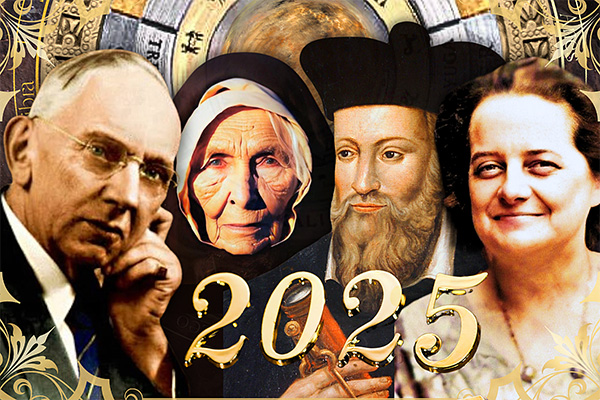Manifesting
The Cautionary Tale Of The Lovestruck Witch
 Once upon a time, there was a goodly witch named Wanda. Though she sometimes had a fiery temper, her heart was generally in the right place.
Once upon a time, there was a goodly witch named Wanda. Though she sometimes had a fiery temper, her heart was generally in the right place.
For many years, Wanda lived a cozy life with her partner, Colwyn the Brave, in a happy and fulfilling relationship.
But one day, out of the blue, Colwyn announced that he was ending the relationship. Although he still loved Wanda, he explained that he no longer had the romantic or emotional feelings necessary to sustain the relationship.
But Wanda was no fool. Fee-fi-fo-fum, she knew by the prick of her thumb…that he was lying through his teeth! The truth was that he had decided to dump her for her so-called best friend, Suvanna the Enchantress.
Wanda was devastated. She had dedicated more than two decades of her life to this man, standing by him through thick and thin. And her friend’s betrayal only added further insult to injury.
Realizing the extent of the pain he had caused, Colwyn tried to comfort Wanda, assuring her that one day she would meet someone who would make her much happier than he ever had.
But his words fell on deaf ears. Wanda was heartbroken and very, very angry.
Then she remembered…she was a witch. She could make things happen, especially with the help of her sisterhood of witches.
Manifesting Success With The Law Of Assumption
 We’re often told not to make any assumptions about people, situations, or outcomes. Common wisdom suggests we should avoid the pitfalls of ‘jumping to conclusions’ or ‘getting ahead of ourselves.’
We’re often told not to make any assumptions about people, situations, or outcomes. Common wisdom suggests we should avoid the pitfalls of ‘jumping to conclusions’ or ‘getting ahead of ourselves.’
But when it comes to successful manifestation, making assumptions is actually one of the best things you can do! In fact, it’s often exactly what we should be doing to manifest more of our desires.
If you’ve been craving change but struggling to manifest the life you want, the Law of Assumption could be just what your manifestation practice needs. This technique is often the missing piece that helps break the cycle of stagnation and clears the way for you to manifest your desires with greater success.
The Law of Assumption is that whatever you assume to be true, whether consciously and unconsciously, will manifest in your life. By aligning your thoughts, feelings, and actions with the belief that your desire is already fulfilled, you can more effortlessly create the life you want.
In my psychic work, I’ve seen firsthand how this law can be a game changer. It’s a powerful manifestation tool that turns obstacles into opportunities and has helped many of my clients finally create the life they’ve always dreamed of.
If you’re feeling stuck and unable to manifest what you want, it’s probably because you’re unknowingly operating from a place of lack, fear or resistance. You may be doing all the right things – visualizations, prayers, rituals, affirmations – but deep down you may still be holding onto doubts or limiting beliefs that are in direct conflict with what you’re wanting to manifest. Continue reading
Universe, Show Me The Money!
 Money is more than a means of survival or a status symbol — it is also an energy, a metaphysical frequency of abundance that manifests in physical reality. When we embrace this perspective, financial prosperity shifts from something we must chase or compete for to a spiritual resource we can attract with ease and intention.
Money is more than a means of survival or a status symbol — it is also an energy, a metaphysical frequency of abundance that manifests in physical reality. When we embrace this perspective, financial prosperity shifts from something we must chase or compete for to a spiritual resource we can attract with ease and intention.
Our existence is governed by universal principles, one of which is the Law of Attraction. This law states that on an energetic level, like attracts like – we attract into our lives that which resonates with our energy or aligns with our vibrational frequency.
The key to manifestating good things in our life is therefore to align our own energy with the energy of the results we want to create. By focusing on positive outcomes, practicing gratitude, and vividly visualizing success, we tune our frequency to attract those outcomes into our reality.
Conversely, dwelling on negativity, fear, or feelings of scarcity lowers our vibration and hinders manifestation, often leading to stagnation or unwanted results.
Manifesting financial abundance from a metaphysical perspective is not about greed or superficial status.
Instead, it is a deeply spiritual process of aligning with your highest good, trusting the abundant flow of the universe, and embracing your innate creative power as a spiritual being. By recognizing that wealth is a tool to support your purpose and enhance your well-being, you unlock its potential to flow into your life for your highest good.
The Miracle Power Of Divine Timing
 Patience is considered a virtue, something that makes us better people. But it’s so much more than that — it’s a spiritual principle that can truly transform your life for the better.
Patience is considered a virtue, something that makes us better people. But it’s so much more than that — it’s a spiritual principle that can truly transform your life for the better.
In today’s fast-paced, click-now world, where everything is at our fingertips, it can seem a real struggle to practice patience. But being patient isn’t just about waiting. It’s about how you wait.
It’s about slowing down, taking a deep breath, and letting go of the need to control everything. Patience is not about being passive or giving up; it’s about trusting the timing of the universe and going with the flow.
Everything in life happens exactly when it’s supposed to, even if it doesn’t feel that way in the moment. There’s always a bigger plan at play — one that we co-create with the universe through our thoughts, intentions and actions. When you trust this process,you soon discover that even setbacks and obstacles are actually stepping stones.
When things don’t go as planned, it’s easy to get frustrated and think that nothing is working out. But often what feels like a “no” or a delay is actually the universe saying, “Hang in there, I’ve got something better for you. Patience is about believing that everything will eventually make sense, even if you can’t see it now.
The problem with impatience is that it upsets everything. It’s like trying to push a door that’s supposed to pull — it just creates resistance. When we’re impatient, relationships can crack under pressure. Work can feel unstable or hard to pin down. Money problems seem bigger and harder to solve. Impatience feeds frustration, and frustration can create an energy block that pushes the good stuff away.
Using Crystals To Attract Love And Money
 Crystals, with their metaphysical properties and magical allure, are a powerful tool for attracting love and prosperity as we enter a new year. By harnessing their unique energies to power our intentions, we can manifest more of the life we desire.
Crystals, with their metaphysical properties and magical allure, are a powerful tool for attracting love and prosperity as we enter a new year. By harnessing their unique energies to power our intentions, we can manifest more of the life we desire.
The metaphysical properties of crystals come from their unique molecular structure that resonates at certain frequencies. When we work with crystals, we are essentially aligning and amplifying our own energy field with these frequencies to amplify our intentions and manifest our desires by resonating more powerfully with the vibrations of the things we wish to attract into our lives.
Crystals and gemstones have been used for centuries in various cultures for their metaphysical power, healing properties, and ability to aid in magic and manifestation.
The ancient Egyptians valued crystals for both decorative and spiritual purposes. Egyptian priests and healers routinely used crystals for sacred rituals and healing, knowing that these stones had the power to connect them to the divine and balance energies.
In the Middle Ages, amethyst was often worn by the Christian clergy as a symbol of purity and spiritual wisdom. Garnet, another popular gemstone, was used as a talisman for protection during travel and to inspire love and devotion. In some Christian churches, chalices and crosses continue to be adorned with precious gems to symbolize sacred and divine qualities.
Abundance Rituals For A Prosperous 2025
 The universal energy of renewal and infinite possibility beckons as we enter the year 2025. The beginning of a new year is a great time to release old energies that no longer serve us and to invite a new wave of abundance, prosperity and fulfillment into our lives.
The universal energy of renewal and infinite possibility beckons as we enter the year 2025. The beginning of a new year is a great time to release old energies that no longer serve us and to invite a new wave of abundance, prosperity and fulfillment into our lives.
New Year’s manifestation practices not only clarify and align our intentions from the start, but also release energetic blockages, allowing prosperity and well-being to flourish. Releasing the old creates space for new possibilities and opportunities to flow into our lives.
The modern idea of setting intentions or “New Year’s resolutions” has its roots in various traditions. For centuries, cultures around the world have marked the transition to a new year with spiritual, esoteric, and religious practices and ceremonies.
In Mesopotamia, for example, the Akitu festival celebrated the Spring Equinox as the beginning of a new year and included rituals to honor the gods and ensure a bountiful harvest.
In Babylonia, at the beginning of each year, people made promises to their deities to return borrowed items and pay their debts. These promises were a way to start the year fresh and in good standing with the higher realms.
The ancient Romans perpetuated the tradition by dedicating the month of January to Janus, the two-faced god who looked both backward and forward to symbolize “looking back” on the past year and “looking forward” to the New Year, making it a time for personal reflection and new beginnings.
2025: Psychic Insights For The New Year
 As the final hours of 2024 tick away, the Psychic Access team reflects on the incredible journey we’ve shared with you this past year. To all of our valued clients and supporters, this message comes with heartfelt gratitude and warm wishes as we prepare to enter a new year together.
As the final hours of 2024 tick away, the Psychic Access team reflects on the incredible journey we’ve shared with you this past year. To all of our valued clients and supporters, this message comes with heartfelt gratitude and warm wishes as we prepare to enter a new year together.
The transition into a new year is always a powerful time. It’s a chance to pause and reflect on the lessons we’ve learned and the mistakes we’ve made. Every experience, whether joyful or painful, contains the seeds of wisdom. What did 2024 teach you about yourself? These reflections are not meant to create guilt, but to illuminate the path forward.
The year 2024 was filled with moments of incredible triumph, healing, and self-discovery for many of you, and it has been an honor to be with you every step of the way.
This past year also brought its share of karmic lessons and the overcoming of major setbacks and obstacles. For many, it was a year of intense growth through trial and tribulation — whether in relationships, career, health, finances, or spiritual awakening.
You turned to us for clarity in times of uncertainty, for connection with your guides, angels, ancestors and loved ones, and for divine guidance and spiritual insight to light your path.
Each interaction with you was a sacred exchange, an honor and a privilege, a moment when your courage and openness allowed us to support you in growth, healing and transformation.